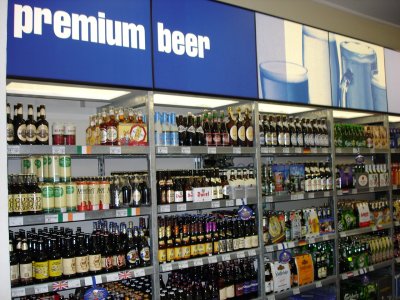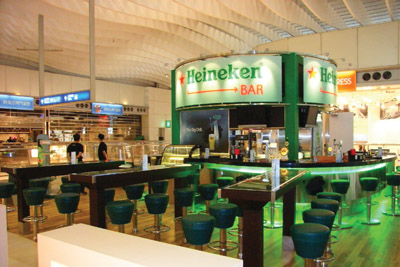Having already lost Muhtar Kent to The Coca-Cola Company and his successor Ahmet Boyacioglu to a well-deserved retirement, Efes Breweries International (EBI) announced that the supervisory board will propose to the Extraordinary General Meeting that Alejandro Jimenez be appointed as CEO.
Development by the textbook. Anheuser-Busch hopes to double the amount of Chinese cities where it sells its Budweiser beer over the next five years from currently 100 in an effort to increase its profits.
The Japanese were not amused when in February this year, Steel Partners, a New York-based buy-out fund and one of its leading shareholders, announced that it may launch a tender offer to raise its stake in Sapporo to 66.6 percent. The battle of words has since heated up.
Tandou Wines is the seventh largest wine producer in Australia with a capacity of three million cases per annum. It sells the Broken Earth and Wontanella brands. The stock-market listed Champagne Indage has a one million cases-winery in Narayangaon, near Nashik, a city in the state of Maharashtra, 185 km away from Mumbai (Bombay).
Strong growth in bulk wine shipments helped achieve the new record, in spite of a drop of 6.6 percent in the average price, the Australian Wine & Brandy Corporation reported in January 2007. Bulk shipments rose by 38 percent to 212 million litres, representing 28 percent of total exports and sparkling wine rose strongly by 14.1 percent. The average price of Australian wine has fallen by more than 5 percent for each of the past four years and averaged AUD 3.72/litre last year, reports John Harvey from Adelaide.
At the end of January 2007 Foster’s shares traded at AUD 6.67. That was significantly above the analyst’s average target price of AUD 6.54. Analysts agree that the company has experienced hard times in the wine industry since its AUD 3.2 billion takeover of Southcorp in 2005. Although wine now represents 60 percent of Foster’s assets it produces only 40 percent of the profit and the market is asking when the long-awaited turn-around is going to occur. Now what’s new about that? Haven’t they been waiting for a turn-around for years? Gentleman, let us tell you, you may be in for a long wait.
Anheuser-Busch has already invested about USD 1.3 billion in mainland China, the world’s largest beer market by volume, helping it become Anheuser-Busch’s largest overseas market and fastest growing. Anheuser-Busch has a 27 percent stake in Tsingtao Brewery Co. Ltd., China’s largest brewery. It also bought Wuhan Brewing Co. in 1995 and Harbin Brewery Group, the country’s fifth ranking beer company.

As if brewers needed a reason to raise prices on beer. This time Australia’s brewers may have found a new excuse: the poor barley harvest last year.
Seems like we are back in the 1990s: Three Australian craft brewers went public in December as the trend towards expensive beers has reached the stock market. The three craft breweries (Empire Beer, Gage Roads and Oz Brewing) are based in Western Australia and are collectively raising AUD 15 million via initial public offerings.
What will be the new look of business conglomerate San Miguel, having recently sold its entire 65 percent stake in its softdrink arm to joint-venture partner Coca Cola Co?



